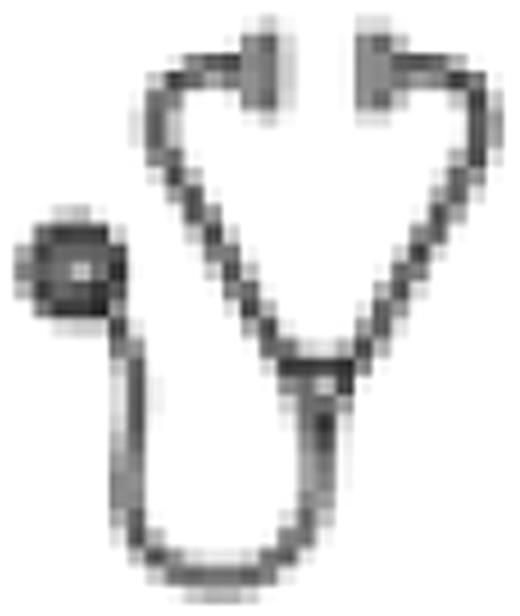Abstract
Abstract 720
Patients with congenital hemophilia and inhibitors are at increased risk for serious bleeding complications and progression to end-stage joint disease. Anecdotal reports and small case series suggest that regular doses of anti-inhibitor coagulant complex (AICC; FEIBA VH) may be effective in preventing bleeding episodes in patients with hemophilia A and inhibitors. The Pro-FEIBA study is the first prospective controlled clinical trial to study the efficacy of AICC in bleed prevention.
The study was conducted in hemophilia A patients >2 years with a history of high-titer inhibitors who were using bypassing therapy for the treatment of bleeding episodes. Subjects on or planning immune tolerance therapy were excluded as were patients with thrombocytopenia or other bleeding disorders. This randomized, crossover study compared 6 months of AICC prophylactically dosed at 85 U/kg ± 15% on 3 nonconsecutive days per week (Prophy period) to 6 months of on-demand therapy (OD period) (target dose for the treatment of bleeds: 85 U/kg ± 15%). The 2 study periods were separated by a 3-month washout, during which time patients used on-demand therapy for bleeding. Patients were randomized to initially enter either the 6-month Prophy period or the 6-month OD period. Each patient then crossed-over to the alternate study period after a 3-month wash-out.
Thirty-four subjects were randomized; 26 subjects completed both study periods and were deemed evaluable per protocol (PP) for efficacy analysis of the primary outcome to compare bleeds in each 6-month treatment period. Eight subjects did not complete the study (1 patient in the Prophy treatment arm and 1 patient in the post-prophylaxis washout period died of complications associated with underlying illness and bleeding, 1 patient experienced an allergic reaction to study drug, 1 patient was lost to follow-up, and 4 patients withdrew from study). All randomized subjects were evaluated for safety. In the PP group, mean patient age was 26.9 years (median: 24.7; range: 2.8–67.9). In the total randomized group, mean patient age was 27.1 years (median: 28.7; range: 2.8–67.9). Of the 26 subjects who completed the study PP, 14 were randomized to enter the Prophy period first and then crossed-over to the OD period, while 12 subjects were initially randomized to enter the OD period and then crossed-over to the Prophy period. For the PP analysis, total bleeds and joint bleeds requiring treatment during the 2 study periods were compared (p-value is for the Wilcoxon signed-rank test of difference between OD and Prophy periods). In addition, bleeds for the 6-month period prior to enrollment were recorded retrospectively on study entry.
Both total bleeds and joint bleeds were significantly reduced during the Prophy period as compared with the OD period (p < .0001) Table 1. There was no difference in bleed event rates based on randomization sequence (ie, no carry-over effect was detected when the Prophy period preceded the OD period).
| . | PRE-ENROLLMENT N = 25 . | OD PERIOD N = 26 . | PROPHY PERIOD N = 26 . | P Value OD vs PROPHY . |
|---|---|---|---|---|
| Total Bleeds per 6 months | ||||
| Mean | 14.1 | 13.1 | 5.0 | <0.0001 |
| Median (range) | 10.0 (3–52) | 12.0 (1–29) | 4.5 (0–22) | |
| Joint Bleeds per 6 months | ||||
| Mean | 12.6 | 10.8 | 4.2 | <0.0001 |
| Median (range) | 10.0 (0–52) | 11.0 (0–29) | 3.0 (0–18) |
| . | PRE-ENROLLMENT N = 25 . | OD PERIOD N = 26 . | PROPHY PERIOD N = 26 . | P Value OD vs PROPHY . |
|---|---|---|---|---|
| Total Bleeds per 6 months | ||||
| Mean | 14.1 | 13.1 | 5.0 | <0.0001 |
| Median (range) | 10.0 (3–52) | 12.0 (1–29) | 4.5 (0–22) | |
| Joint Bleeds per 6 months | ||||
| Mean | 12.6 | 10.8 | 4.2 | <0.0001 |
| Median (range) | 10.0 (0–52) | 11.0 (0–29) | 3.0 (0–18) |
A total of 38 serious adverse events (SAEs) occurred, none of which was thrombotic in nature. One SAE was deemed by the study safety monitor to be related to the study drug (an allergic reaction). Otherwise, treatment was safe and well tolerated.
These results in patients with hemophilia A and inhibitors show that AICC, dosed at 85 IU/kg +/− 15% given on 3 non-consecutive days each week was associated with a 62% reduction in all bleeds and a 61% reduction in joint bleeds as compared with on-demand therapy.
Leissinger:Baxter: Honoraria, Membership on an entity's Board of Directors or advisory committees, Research Funding; NovoNordisk: Honoraria, Membership on an entity's Board of Directors or advisory committees, Research Funding. Off Label Use: This is a report of a clinical trial using the Anti-Inhibitor Coagulant Complex, FEIBA, as prophylactic therapy to prevent bleeding in hemophilia patients with inhibitors. FEIBA is not currently licensed for use in prophylaxis in the US. Berntorp:Baxter: Consultancy, Honoraria, Research Funding. Negrier:Baxter: Honoraria, Membership on an entity's Board of Directors or advisory committees, Speakers Bureau. Rocino:Baxter: Honoraria, Membership on an entity's Board of Directors or advisory committees, Speakers Bureau; NovoNordisk: Honoraria, Membership on an entity's Board of Directors or advisory committees, Speakers Bureau. Windyga:Baxter: Honoraria, Membership on an entity's Board of Directors or advisory committees, Speakers Bureau. Gringeri:Baxter: Consultancy, Honoraria, Research Funding; NovoNordisk: Honoraria.

This icon denotes an abstract that is clinically relevant.
Author notes
Asterisk with author names denotes non-ASH members.

This feature is available to Subscribers Only
Sign In or Create an Account Close Modal